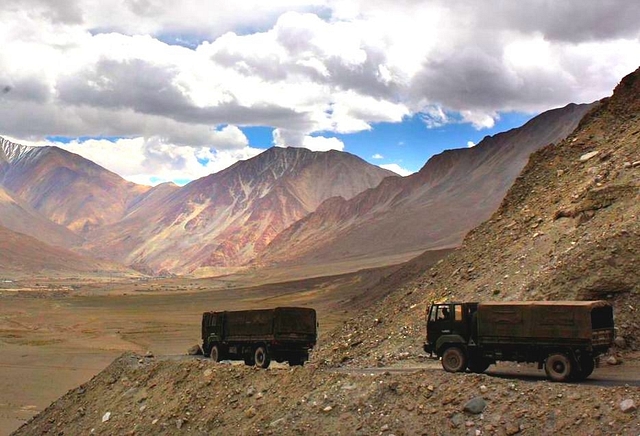
India Has Tripled Spending On Roads Along China Border In Past Four Years; Construction Faster Than Before
India is not only spending more on roads along the China border than a few years ago, but also building them faster than it was a few years back.
In the last four years under the Narendra Modi government, India has almost tippled its expenditure on roads along the China border critical for movement of troops and equipment, a report in the Economic Times says.
Between 2008, when India spent Rs 3,300 crore on these roads, to 2016, when the expenditure was Rs 4,600 crore, allocation increased by just Rs 1,300 crore.
However, between 2016 and 2020-21, the allocation for these roads increased from about Rs 4,600 crore to Rs 11,800 crore.
India has also significantly improved the speed of construction of roads along the border between 2017 and 2020.
The speed of formation cutting, a process in road construction which involves fresh alignment and extensive earthwork, has more than doubled to 470 km per year from around 230 km until 2016.
The rate of surfacing, which involves the laying of a layer of bituminous material, has increased to 380 km per year from 170 km per year in the past decade.
“During 2008-14, under the UPA, 3,610 km of roads were completed, while under the current NDA regime, 4,764 km has been completed,” the report reads.
Experts have said that these improvements have resulted from the changes that the Border Roads Organisation has undergone over the last few years.
One, the organisation was brought under the full control of the Defence Ministry. Under the earlier arrangement, BRO received funding from the Ministry of Road Transport, while its tasks were defined by the Defence Ministry. This dual control was an impediment in the smooth functioning of BRO.
Two, in 2017, on the day the India-China standoff at Doklam ended, the Modi government announced that it was doing away with the need for forest clearance for infrastructure projects for the Army within 100 km of the LAC.
The Modi government had also given a similar general approval after coming to power in 2014. Delay in forest and environmental clearance held up road projects for years.
Three, in the midst of the Doklam stand-off in July 2017, the government delegated more administrative and financial powers to BRO officers. In some cases, financial powers were increased as much as ten-fold and fifteen-fold.